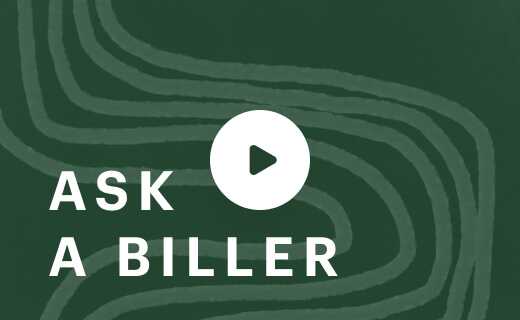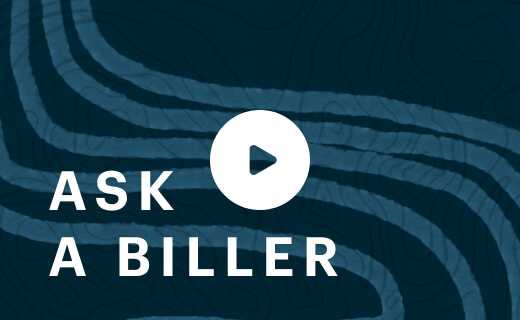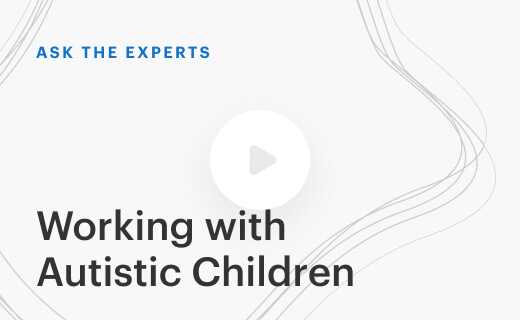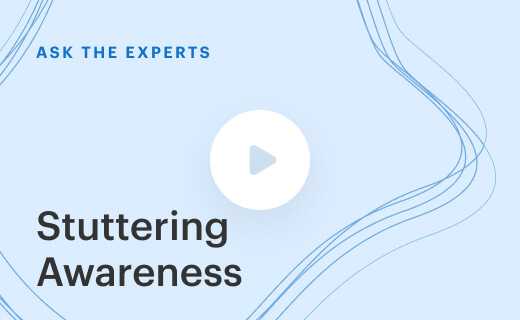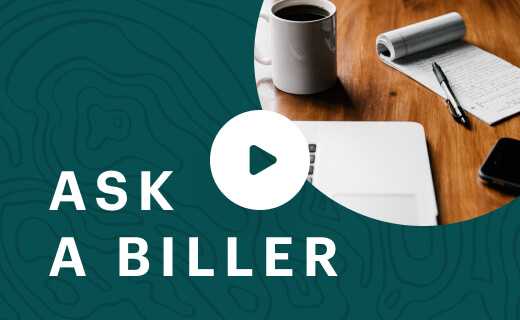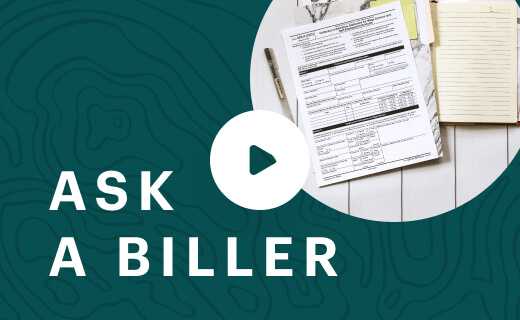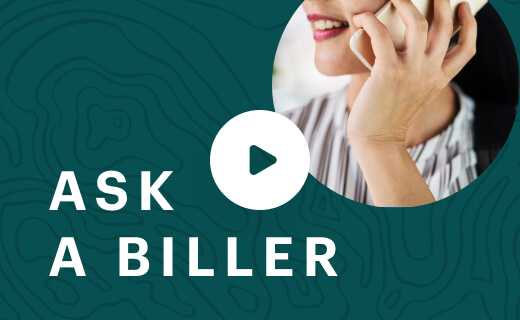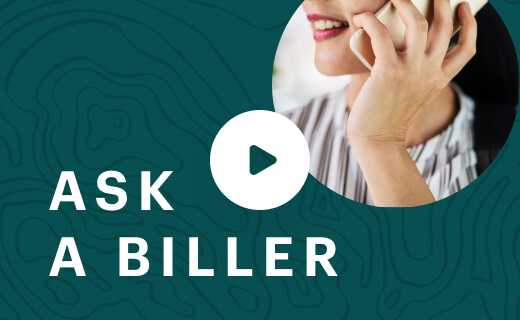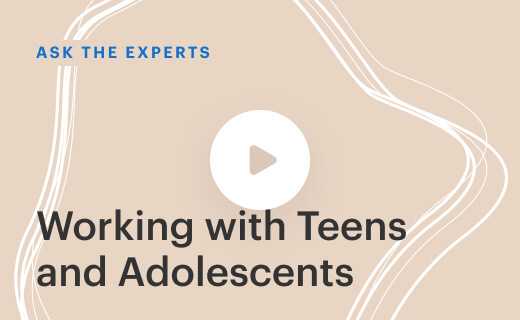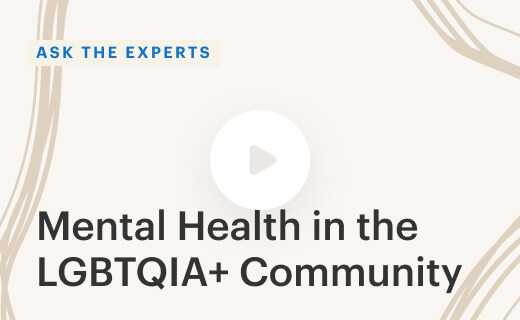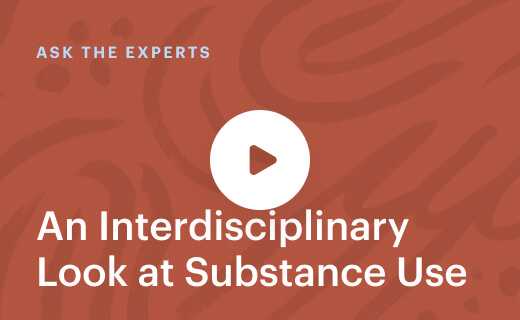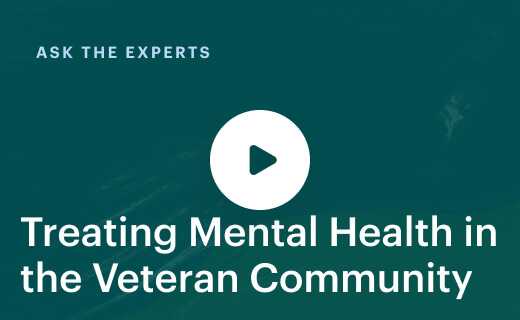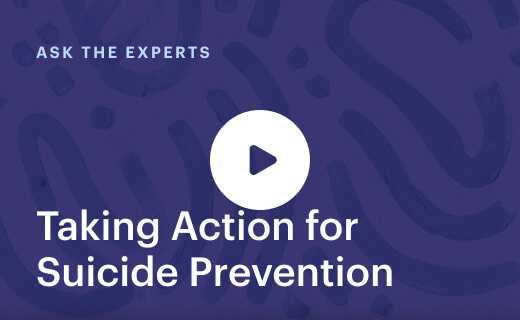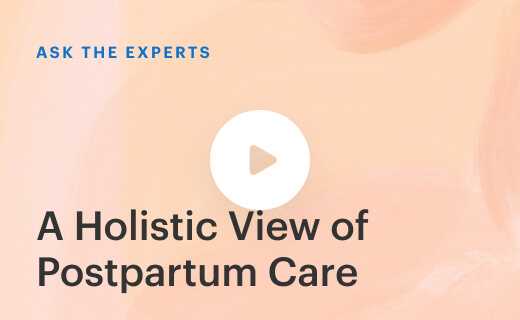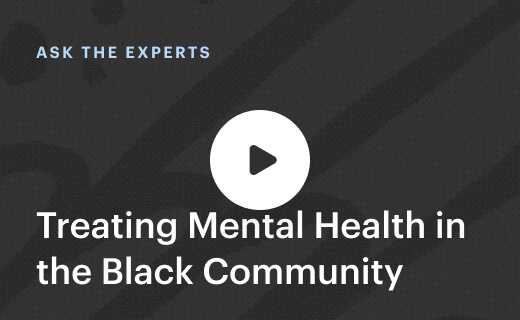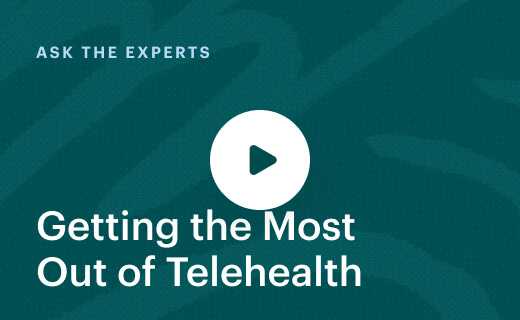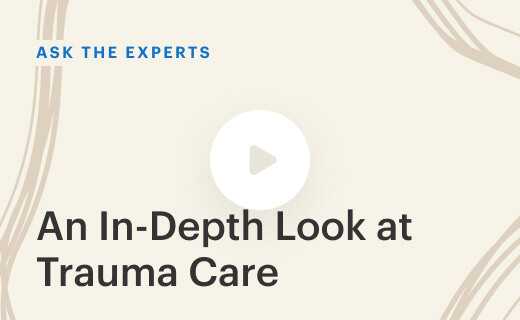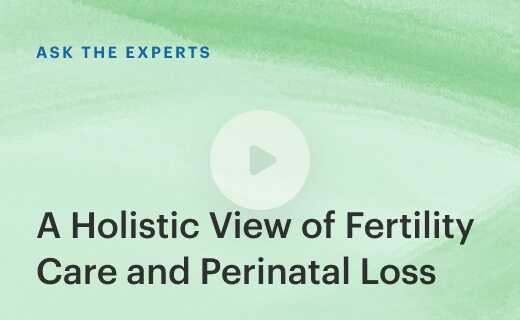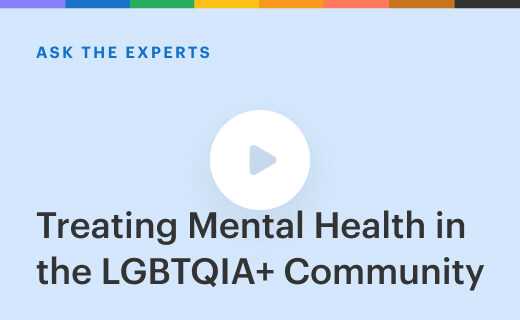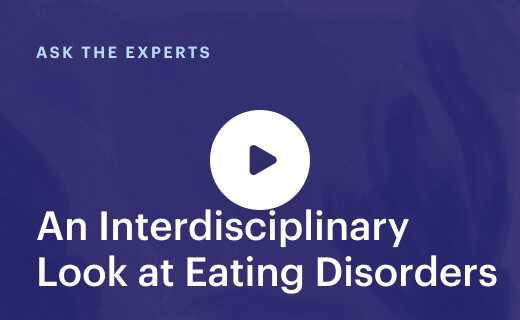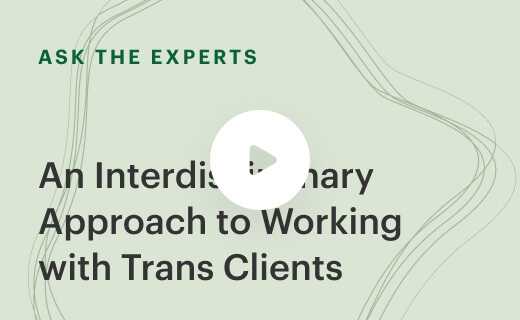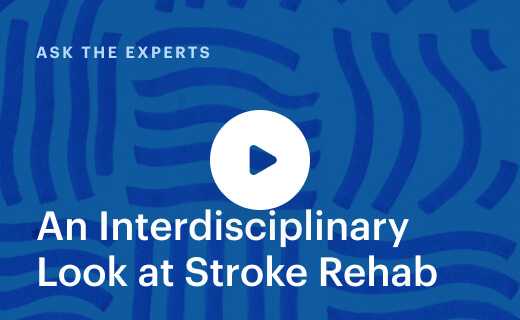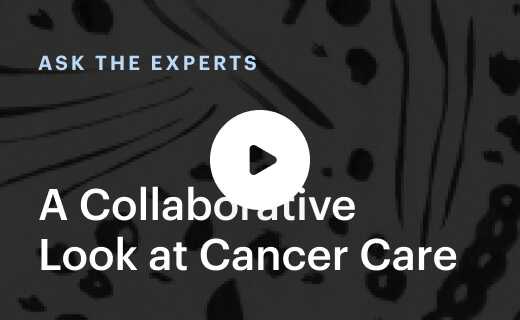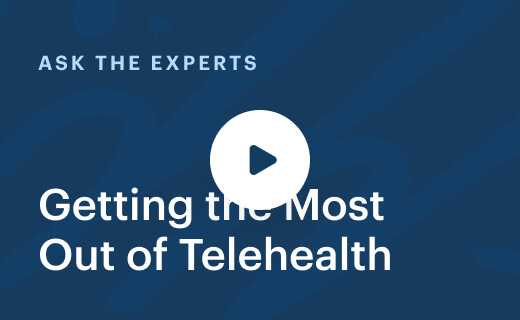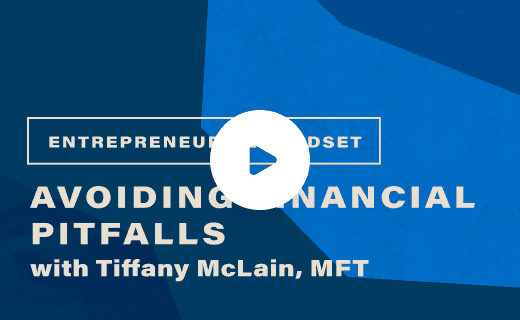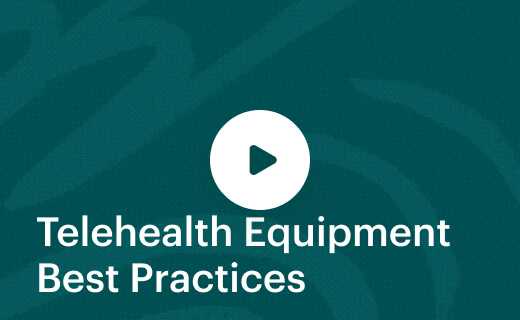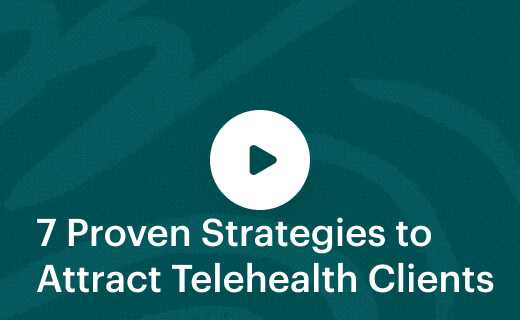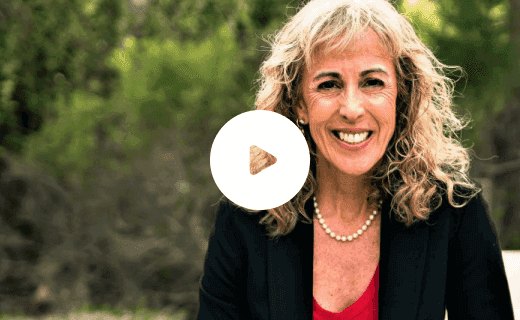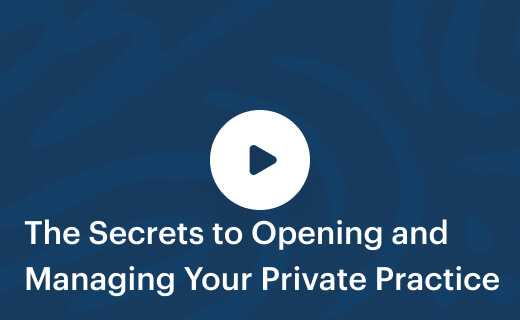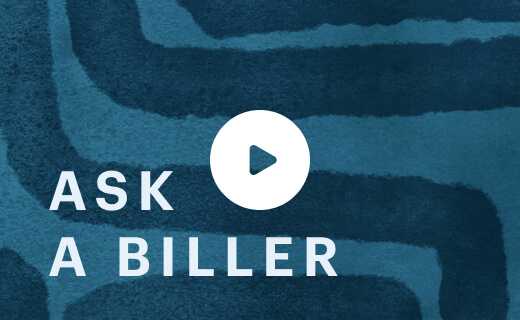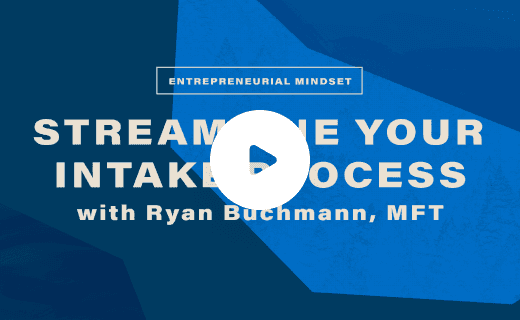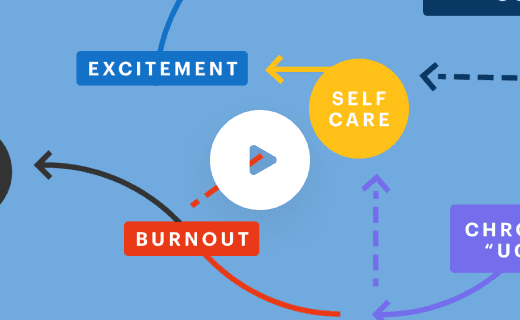A Holistic View of Postpartum Care
Free 30-day trial, access all this & more:
Want to know about other great webinars?
Join Sherry Nafeh, M.A. LMFT, Crystal Karges, MS, RDN, IBCLC, and Annie Frisbie, IBCLC as they discuss how to offer care in a collaborative and holistic way, to women who are experiencing postpartum depression.
Facilitated by Dr. Katayune Kaeni, this group of experts answers questions from what the best practices are for women dealing with postpartum depression, to working with clients who have feelings of inadequacy or doubts on being a mom. They also share their insight on how to keep yourself educated in this topic, and collaborative ways you can offer care.
Most importantly, they encourage a holistic approach to working with women who are experiencing postpartum depression—because even though this work can be challenging, there’s always room to grow and to continue learning.
- Introductions
- What is the importance of treating perinatal and postpartum issues with an interdisciplinary team?
- What research do we have on the correlation between breastfeeding and depression?
- How do you respond to women who develop anxiety and depression from their breastfeeding experience or lactation failure?
- How can we best support mothers during COVID-19, where mothers may not have access to the carer health they typically would receive?
- What are some considerations for black moms given the disparities in maternal deaths and postpartum care?
- How can we best to support the de-stigmatization based around the idea of breast is best?
- Do mothers who have counseling prior to giving birth have a lower rate of postpartum depression?
- What techniques are most effective for moms struggling with body image issues?
- How do you distinguish between symptoms caused by hormonal shifts versus external pressures, lack of sleep being a new parent?
- How long will postpartum depression last and is it possible to have a delayed onset?
1. Introductions
Dr. Kaeni: Welcome everybody and thank you for joining us today in our meaningful discussion and a glimpse into postpartum care. We have some really awesome providers here today to share their expertise with us and answer some questions that were submitted from attendees, pre-submitted. And there are so many great questions that came in. I wish we had hours to answer everything and to give you all the information that you need, but I still hope that even though we won’t be able to get to every single question, there will be a lot of meaningful information and education for you here today. And we’re also glad that you are interested in being here and learning. I am Dr. Katayune Kaeni. I go by Dr. Kat. I’m a private practice psychologist and I specialize in perinatal mental health.
And right now, as most of us do, I run my practice online. I am a board member for postpartum Support International, and I host a Mom & Mind podcast. And I came to this profession by way of personal experience, or the specialty rather, of going through some of my own postpartum mental health changes. With that, I’m grateful that you guys are here to learn, and hopefully get some good information to take back to your practices and into your life. I’m really happy to have you here, and I’m going to have our speakers introduce themselves. We have Crystal Karges and Annie Frisbie, and Sherry Nafeh, who are going to share with us their expertise.
Crystal Karges: Hi. I am Crystal Karges. I’m a registered dietitian and board certified lactation consultant, and also a momma of five kiddos. And also, like Dr. Kat’s, my experience with postpartum depression after my first three children was [inaudible 00:02:19] to specialize in perinatal health for women and also just to support them through the transition into motherhood, because there’s so many different factors and things that are happening at this time. And so I’m just really passionate about supporting moms and building a relationship with food and their bodies that support them through motherhood. So I’m super happy and glad to be here.
Dr. Kaeni: Okay, thank you Crystal. Annie?
Annie Frisbie: Hi, I’m Annie Frisbie. I’m a board certified lactation consultant. I am in private practice in New York City. And pre-COVID, I was exclusively doing home visits for lactation support and now I’m exclusively doing virtual visits and hoping to return to in-person at some point soon. And I have a real passion for perinatal mood disorders and supporting families, seeing how effective the right interventions can be and really getting families on track so that these parents can enjoy their babies because that’s really what it’s all about.
Dr. Kaeni: Fantastic. Thank you. So if Sherry comes back we’ll hear a little bit more from her. So let’s dig in to our questions and I’ll be your facilitator and popping in where I can with some answers as well. Question number one that came in, “What is the importance of treating perinatal and postpartum issues with an interdisciplinary team?” And I think we all have great perspectives on this. Annie, what are your thoughts?
2. What is the importance of treating perinatal and postpartum issues with an interdisciplinary team?
Annie Frisbie: Yeah, I mean, I think it’s the only way to take care of these issues. So for me as a lactation consultant, I don’t have a medical license, so I’m an allied health professional. I’m meant to work within a team, and that’s really foundational to the work that IBLCEs do is connecting the different care providers. And often, because I’m in someone’s home, either in person or virtually, I’m seeing things that don’t get revealed in an office setting during a well child visit, or the six week postpartum visit. And often in the course of sharing with me what’s going on with breastfeeding, or not going on with breastfeeding, they’re revealing all kinds of other things. And I’ve learned through the years where I need to say to these families, “I am not the person for this, but I would love to help you find the person who can help you with this.” And it’s an honor to be with these families, but it is certainly a burden too heavy for someone to carry alone, especially without the license or training to actually do the work that needs to be done with them.
Dr. Kaeni: Absolutely. Crystal, what are your thoughts?
Crystal Karges: Yeah, absolutely, just to echo what Annie just said that what we are encountering are very complex and layered. There are so many different things that are happening in their lives. And when you think as an allied health professional too that we may have an that we’re seeing that maybe other professionals are not seeing. And same here. I see a lot of things in my nutrition practice that may not get seen when our moms are seeing their ob/gyn or their midwife. And so collectively, when we can combine our expertise together we can really help address the multi-factors that are happening for new moms as they enter the season of pregnancy and postpartum.
Dr. Kaeni: Yeah. Absolutely. So from a mental health perspective, certainly when I’m meeting with clients in the office, to sit with people for hours, one hour at a time, I’m seeing just a slice of their experience and what they’re feeling. And in all of the collaboration that I’ve ever done with other providers, including lactation consultants, nurse practitioners, obs, I get more information and more pieces of the puzzle that can really help strengthen and improve a treatment plan, goals for that particular client. Especially, when they know that multiple providers working together on their behalf, it contributes to the feelings for them that they are not alone.
And because our systems have been so siloed in the past, and when you go to your physician, that’s what they take care of and you go to your OB, that’s what they take care of, when we can integrate them, the overall care for the patient and the plan is just way better. And I know that their providers are all on the same page. Yeah. Any other thoughts for this question, is Sherry there? Okay. Moving along to a question number two, what research do we have on the correlation between breastfeeding and depression? Crystal, would you like to start with this one?
3. What research do we have on the correlation between breastfeeding and depression?
Crystal Karges: Sure, absolutely. This is such a great question. So the things that I’ve seen in my work, but also from the literature is that there are a couple of different things. So one, unresolved pain issues can be a trigger for depression and just feelings of failure. And I think sometimes mom understanding that breastfeeding is supposed to be painful and so they don’t really reach out for help. They don’t ask about it and they just try to push through it, but really that unresolved pain that’s associated with breastfeeding, it can absolutely be a trigger and a risk factor for postpartum depression. The other thing that I see from the literature and also in my practice is the correlation between poor body image and breastfeeding and also postpartum depression. So sometimes if a mom has a history of trauma or even birth trauma, she can have more issues with breastfeeding and just getting that off successfully and then that can all be interlinked into risk factors for depression.
Dr. Kaeni: Sure. Thank you. Annie, what have you experienced?
Annie Frisbie: Yeah, I mean, definitely everything crystal just said and also kind of adding the unique cultural position, like our American families are in, which is these families are being told that breastfeeding is a choice and that becomes success or failure. So this has become something not that is an inherent biological right and part of the natural reproductive process, but it’s something that you’re opting into that you have to make happen. And so when that’s the case, there’s so much tied up in its success or its failure when really, and this is not an original thought to me and people can read a book called The Big Let Down by Kimberly Seals allows us to learn more about this idea, which is people don’t breastfeed, communities breastfeed, cultures breastfeed. And when a family cannot breastfeed, that family was failed by the system. There’s no place in there where any individual fails. And that is a message that is not getting through to families. It’s certainly not getting through to them in marketing around infant feeding.
And I think that really gets minimized a lot by just kind of in that space where people are sharing their breastfeeding troubles, when people just say, “Well, just don’t feel guilty. All you have to do is not feel guilty.” And when your body isn’t working the way it’s supposed to work, that’s so much more than guilt and success.
Dr. Kaeni: Sure, absolutely. Yeah. And I have also seen in some research that people who want to breastfeed, but can’t for any number of reasons tend more to depression. And people who don’t want to breastfeed, but either feel pressured or feel like they have to, and it wasn’t something in line with what their plan was, also our tends more towards depression. And to your point, Annie, it becomes so individualized, is like a personal failure if they can’t, or don’t want to, that it becomes very internalized in like a personal problem, but I agree it’s a community problem at least. Great. All right, moving to question three. How do you respond to women who develop anxiety and depression from their breastfeeding experience or lactation failure. Annie, what have you seen there?
4. How do you respond to women who develop anxiety and depression from their breastfeeding experience or lactation failure?
Annie Frisbie: Yeah, I mean, I’ve had the honor to support a lot of women who have been experiencing diagnosed postpartum anxiety or postpartum depression and walking with them through their breastfeeding journey and the ups and downs. And what I have seen is the importance of really having that help separated, but working together. So we need the mental health professional to be addressing the mental health issue. But one thing that I’ve found that can be really harmful is when, I mean, I’m sure this happens both ways, so I’m not saying it’s one way or the other, but when the mental health professional in all the best meaning ways starts giving breastfeeding advice and infant feeding advice, which is really common enemy lactation consultants. And we teach about this, like, “Don’t step outside your scope. You’re not a therapist unless you are a therapist.”
And so it is super important for the parents to know, “I talked to my lactation consultant about feeding and nutrition and what’s going on with my body. And I talked to my therapist about what’s going on with my feelings and that the therapist and the lactation consultant are in communication with each other.” So that the parent isn’t getting conflicting messages about feeding. I had one client who was dealing with a very intense case. And I was emailing regularly with the therapist, just kind of staying in the loop. Okay, like watching her ups and downs and then the therapists giving me things to say to her and me telling the therapist here’s how to support her with her feeding goals. I mean, it was beautiful to see it worked that way. And I know she felt like you were saying Dr. Kat, just that web of support and how meaningful that was to her. I wish everybody could have that.
Dr. Kaeni: Sure. Yeah. Crystal, do you have any thoughts on that too?
Crystal Karges: Yeah. Just to add to that, I think it’s important for women to be reminded that there’s not a one size fits all; to feeding, to your postpartum journey, to your healing experience and that yes, as professionals, we exist to help support a woman’s unique needs, and her unique journey and healing experience. And I think help women identify like what that failure means, what it represents to them. And also just reminding them of the big picture that they’re coming into here that sometimes, mental health has to be a priority. And if breastfeeding has been triggering to that, for any reason, we want to help support her and help her work through that, so that she’s looking at herself holistically, not just I’m supposed to breastfeed and compartmentalizing herself as a mother, she’s a whole person.
And again, just affirming what Annie has shared too. I think this is such a beautiful way that we can collectively work together and reach out across the aisle as providers to support these women. Because as you can see, from issues like this, it’s a very complex thing. It’s not just the lactation issue. It’s not mental health, they’re overlapping. And I think supporting her through that is really important.
Dr. Kaeni: Yeah, absolutely. Okay. Thank you for that. Next, how can we best support mothers during COVID-19, where mothers may not have access to the carer health they typically would receive, Crystal, what are you seeing in your practice?
5. How can we best support mothers during COVID-19, where mothers may not have access to the carer health they typically would receive?
Crystal Karges: Yeah, this is such a good question. I feel like it’s ongoing, it’s evolving. But yeah, I think getting really creative with the virtual support and resources that we have, and I know it’s not ideal because it’s not in person, especially for things like lactation visits. I think having that in-person connection, a lot of moms that[inaudible 00:15:09] formal groups and connect in person with other mothers, they really feel like they’re lacking that right now. And I think trying to utilize the virtual resources that we’ll have as best as possible and helping remind them that they’re still connected to other women, even if it’s not in the ideal in-person situation that we would prefer.
Dr. Kaeni: Okay, great. So Annie, yeah, what are you doing? And what are you seeing that’s helpful and supportive?
Annie Frisbie: Yeah. I mean, I think the virtual visits have their limitations, but I do think there’s certain problems that these families have that nobody can solve. So here in New York city, I mean, people are trapped inside studio or one bedroom apartments with a new baby. And for me, sometimes I feel like the only thing I can say is there’s nothing right about what you’re going through right now. This is not how it’s supposed to be. And then to kind of contextualize it and say, “Even under the best of circumstances, if you were having no feeding problems, you would still need help.” You’re not supposed to do this without help. And I’m really sorry you can’t get the help that you need because you should have it.
And so I can offer that empathy. I don’t have a solution attached to it, but just to say, “I’m here for you to talk to you about your baby and what’s happening, and I’ll try to help you get what you need.” But just to affirm that their feelings have nothing to do with their adequacy as a parent and have everything to do with the fact that they had a baby during a pandemic. And that was never in their plan.
Dr. Kaeni: Right. A hundred percent. Yeah. I feel like I’m doing those kinds of things too. There’s a lot of normalizing that we have to do in validating as much as possible because nobody knows really, no one who’s alive anyways has ever dealt with this before, and we’re all trying to figure it out, and I think it’s hard, especially for first time parents too, for everything to be new already and then not having a soft place to land, a place that feels like, yes, this is it, to rely on a plan, especially, for people who are feeling anxious and want to try and managing and control as much as they can, there is just so much that feels out of control. So getting creative about well, what can we use? There’s a lot of time there where it was concerned with for people who are pregnant about if they would be able to have their partner in there to deliver and, or a doula or anybody. And there’s been a little bit of progress now, mostly partners can go in.
But still it’s a lot of grief just acknowledging the grief of that this isn’t what I planned for. This isn’t really what I wanted. And that’s not to say that people don’t have a fine experience, certainly, people are having decent and good experiences and we’ve had to get creative, how can you call in a partner? Can you call in a doula and have somebody there with you virtually? And how can you use your online resources? Do you feel safe with having a meal train? People still coming through and dropping meals off and really exploring what they’re comfortable with and what their needs are, and are there creative ways to still help them meet their mental, emotional, and physical needs?
And certainly, if somebody is meeting with me, they’re at a place where they’re already having a hard time and they’ve come to a therapist because things aren’t going well. So sometimes that’s really like pulling in partners and family members and other people who can either help check on them, help with chores, help explain for them on their behalf to partner like, this is what’s going on for them. And it’s hard for them to even be able to conceptualize it or talk about it. So yeah, and in any way, we’ve had to get very creative with how to access the care in virtual spaces. And sometimes it’s helpful and sometimes it’s not, and that is really, really challenging to sit with that reality. But the more that we can normalize and get creative and be there with them, the less alone feel.
All right. Question number five, what are some considerations for black moms given the disparities in maternal deaths and postpartum care?
6. What are some considerations for black moms given the disparities in maternal deaths and postpartum care?
Dr. Kaeni: Thank you for that question. And it is a big question and an important question and a necessary one, and really deserves its own call. Some of the things that I’d like to say first is that there are a lot of organizations and individuals really working hard to fix and to heal these disparities. And it’s a deep, deep, issue and problem. But some right now, also some of the options are setting up your village, setting up your care team with people, if they’re accessible to you, with people who understand the current difficulties and challenges related to maternal mortality and infant mortality and for black women and for women of color.
I’m going to use give you several resources to point to and we can put this in the list for you guys to have later. But finding a doula or a midwife, a lactation consultant, or therapist for that matter, who understands these dynamics, it can be really helpful. You’re having an advocate in your corner, having somebody who understands how the systems don’t work and work, how they function rather is very helpful. So there are, I would start looking for resources and support and community through organizations like Black Mamas Matter Alliance, Zazi village, Black Women Birthing Justice, Perinatal Mental Health Alliance for People of Color, Shades of Blue Project, and System Midwife, Frontline Doulas.
There are so many organizations that are doing this work that you can call, you can ask them, what are good resources for me? Do you have resources that are available? Some resources are sliding scale. And so having a team is really, really useful. One other point that I think is important is, and again, this is a huge, huge topic, but in part, because of racism, structural racism and implicit bias, a lot of women, black women in particular, and women of color don’t feel heard when they come to a provider with a pain or a problem or something that they’re concerned about. And it can be really hard to continue to push for what you need and for your care and what your intuition and what your body is telling you, and also being consistent and persistent and it’s really important.
One suggestion is that if you have a really deep need for your provider to do what you’re asking, or to pay attention to something, and they deny that, then ask them to put it in your chart that they’ve denied your request and let it be known in the system that what you needed was not addressed. It may or may not change what happens in the moment, but it… It’s not easy for everybody to do, but it’s sometimes, especially if you have somebody helping you, it can be a useful way to have somebody to listen. And given that, if you have a provider that you don’t feel heard by, or that they’re not listening to you, if you can find another provider. It’s a big question, but for now, I’ll leave it at that. And Annie or Crystal, do you have anything to add to that for now?
Annie Frisbie: I’ll just add a reminder that the end of the month is Black Breastfeeding Week. So we’re in World Breastfeeding Month right now, and there’s World Breastfeeding Week. There is Native Breastfeeding Feeding Week which starts on Monday, and then Supporting Infant Feeding in Emergencies is the week after that. And then the last week of the month is Black Breastfeeding Week. And to really use that as a time to find local organizations that you can donate money to who are doing the work and want funding, they may not want you at your person with white presenting privilege, they may not want you at their event or helping, but they probably would want your money and it can go a long way, so that’s a great opportunity. It comes around once a year to really just focus on the importance of supporting breastfeeding among black mothers.
Dr. Kaeni: Great. Thank you. Okay.
Crystal Karges: Hello, so sorry. I was going to add something really quickly. Sorry. I just wanted to say as a provider, I think it’s so helpful to continue to do the education and the work for ourselves. I think we need to keep doing that to advocate for the black women that we may work with in our practice, and to be better allies to them through the work that we’re doing, it has to start with us. And so I just wanted to mention one quick resource that has been really helpful for me. And that is Mom Congress is actually a lot of work to look at the legislative things that can be pushed to advocate for better maternal health care for our black community. And I think that’s something that has really helped me as a provider as a reminder, like there’s so much work that has to be done, and yeah, it starts with us.
Dr. Kaeni: Great. Thank you. Okay. Question six, how can we best to support the de-stigmatization based around the idea of breast is best? Annie, would you like to start with the fun?
7. How can we best to support the de-stigmatization based around the idea of breast is best?
Annie Frisbie: Sure. Yeah. I mean, I am not a fan of the phrase. Breast is Best. I’m also really not a fan of the phrase Fed is Best. I think that both of those things sort of really make infant feeding and lactation into this really small thing. When in fact, it’s part of your identity and who you are. And I think moving away from this message that any parent is trying to do what’s best for their baby. Let’s just start and erase that nobody needs to do best. There is no best. Nobody’s grading you. There’s no race. There’s no finish line. You’re trying to live your life, and build a family identity and enjoy the person who just came to live with you, and get to know them and see who they are, and also find out who you are in this new role.
And I think that a great step is towards getting away from this breast is best and removing the stigma is to have a bigger, inclusive vision of what is happening with lactation and infant feeding. So recognizing that it’s not breast because pumping is breastfeeding. Parents whose baby’s mouths never touched their nipples are breastfeeding when they’re feeding their babies their milk. Babies who are getting donor milk, either formally or informally are breastfed. They’re getting fed by humans, human milk for human. This is what it really comes down to. And then seeing families be supported in their own biological needs, which also begins with recognizing too, that not all lactating people identify as women or mothers, but there are fathers who breastfeed and chest feeding is a word that we need to get really comfortable using that really what we’re talking about is health and wellness at a much bigger level than just the X number of months that the AAP and the World Health Organization can’t get on the same page about how many months it should be. It shouldn’t matter because this is about building a life, creating health and making strong families.
Dr. Kaeni: Beautiful. Thank you. Yeah. Crystal, what are your thoughts?
Crystal Karges: Yeah. I love what Annie shared. She said it so well. And I think it’s thrill about focusing on the big encompassing picture and we want to help mothers and families make decisions that are best supporting them and moving towards this big picture goal. And I really like to look at infant feeding too, as a relationship between parents and their babies. And how can we nurture that relationship in a way that’s best supportive of not just baby but also mom, and coming together, supporting them and finding out what individual approach is. And like Annie mentioned, there’s so many different ways that we can nurture a feeding relationship between the caregiver and the infant. It’s not just breastfeeding, there’s so many other aspects. I think the way we de-stigmatize that is, speaking out our different ways and reminding moms that there’s so many different factors to consider, and she can at the end of the day do what works best for her family.
Dr. Kaeni: Yeah, absolutely. On the mental health side of this, the effects of the stigma are pretty massive and I see a lot of shame and guilt around the idea of what people are supposed to do and then what happens. If we can do what you guys are saying and reduce the stigma and normalize all feeding like you were saying so beautifully, Annie did that, it’s about building a family, then the pressure isn’t on this one person to essentially keep the baby alive. It becomes a huge mental stress and strain to feel like they’re feeling if they’re meeting the catchphrase like living up to the catchphrase. That’s really, really tough. Okay. Anything else to add for that?
Number seven, do mothers who have counseling prior to giving birth have a lower rate of postpartum depression?
8. Do mothers who have counseling prior to giving birth have a lower rate of postpartum depression?
Dr. Kaeni: What I can say about this is that we know that prevention health and we also know that sometimes depression and anxiety start in pregnancy and unless it’s more moderate or severe symptoms, sometimes people will feel like, “I’m just hormonal or this is just because I’m pregnant.” And kind of minimize a little bit of the depth of the feelings that they’re having. So certainly, I have a huge bias that everybody should go to therapy. But certainly, in the reproductive period of time, it will be going through fertility challenges or trying to conceive, absolutely pregnancy can help prevent, not totally prevent sometimes, but it can help minimize the intensity of symptoms. You can come up with a plan, for a loose plan on how to manage. I’m not talking about birth plan, I’m talking about a postpartum care plan on how are you going to be working with your partner, your family, whoever is involved to make sure that you’re getting adequate rest and nutrition and support so that all those stressors are minimized and therefore you can minimize the chances and or intensity of postpartum depression.
A lot of stuff comes up for people that’s kind of on, it can be really unexpected when they are entering into the reproductive phase of their life and stuff that they didn’t expect to be thinking about or feeling. So having a trained therapist, someone who’s trained in perinatal mental health and understands these dynamics is really important to help reduce the intensity, understand where the feelings are coming from. And as I said before, set up a plan of support and care for the postpartum period. So to that end, yes, it can help lower the rate. I can’t give you statistics on that but I can tell you that I’ve seen it time and time again. Is there anything you’d like to add Annie or Crystal?
Crystal Karges: Yeah, I’ll add something briefly just for my perspective. I work with a lot of women who have eating disorders or who have had a history of an eating disorder. And I think something that can be helpful for us as providers, whatever area you’re working in, is to understand the risk factors of post-partum depression. A history of an eating disorder or mental illness is a risk of postpartum depression. Having a history of trauma that’s going to be a risk factor for postpartum depression. So while, again, we can’t necessarily prevent it from happening, but I think identifying some of those risk factors early on in our practice, whatever capacity we are working with the others can help us advocate for them or lead them to resources that can.
I can help decrease your risk factor early on because like Dr. Kat was saying, a lot of these things will surface in pregnancy, early on in pregnancy. And I think some women are already experiencing some of the symptoms and however we can help to identify some of the risk factors and point her towards resources that can help create that intervention early on, I think is always helpful in terms of preventative care.
Annie Frisbie: Yeah. And I’d love to add that there’s research that shows that the very act of screening is preventive and is an intervention in itself. And so the trainings that I’ve done, there’s one that I’ve done recently called mental health first aid for the perinatal and birth workers, so for lactation consultants and doulas. I’m talking about just screen at every time you see them, just keep screening, don’t stop screening, but also know what to do, if the screening return something, you need to have your referral system in place. And I think, having us just this is just what we do, let’s just normalize screening you because I care about you. And that really, again, creates what we were talking about earlier that web of support where people feel like they’re getting looked after.
Dr. Kaeni: A hundred percent. Yes. Thank you. All right. So next question, are antidepressants allowed when mothers are breastfeeding and does this affect the growth or nutrition of the child? Crystal, would you like to start?
Crystal Karges: Sure. Yeah. And this is a very complex question because I think it really depends on the individual, but generally what the literature shows is that there are certain medications and antidepressants that are safe during pregnancy and postpartum and absolutely can be utilized to help support a mom’s mental health and wellbeing without any detriment to her baby. And I think, again, this can be a huge issue in terms of stigma that a lot of moms are facing. Just wondering. I’ve worked with so many moms who just go off their medication on their own, cold turkey without any advice from their physician, because they just are so scared and nervous that it’s going to hurt their baby. And I just really have to rally around them and show them the right support and resources to help them make a decision, a constant decision that best supports their situation and making sure they’re getting really good comprehensive care. And I think this is where, as providers and allied health professionals, we can, again, reach out across the aisle, connect with the OB/GYN or the midwife so we can work together come up with a plan that best helps mom during this time.
Dr. Kaeni: Thank you. Annie?
Annie Frisbie: Yeah. I mean, everything Crystal just said and just to help parents see that the ownership is theirs, that if your doctor is telling you, you can’t breastfeed on this medication to help equip them with questions to ask back, which is, is there an alternative medication, or what are you seeing that says that this is not safe for breastfeeding? Where is this information coming from? And just to tell them if they don’t, they can ask back what that means. And to know that there are medications that are contra-indicated while breastfeeding and you may, if you have a certain mental illnesses, you may have to choose between feeding your baby, your milk and taking the medication that’s going to keep you alive. And we want to keep you alive, top level priority. But there’s access to human donor milk, your baby could still get human milk. You’re not limiting your baby’s nutrition in that way. And just to say, there are alternatives, like for most of the medications, very few cases where you are going to have to make that hard choice but make the hard choice, please pick yourself.
Dr. Kaeni: Yeah, certainly. And what I see a lot in my practice is similar to what you were saying, Crystal, either the person, not the thinking that they can’t be on medication or their provider saying that they can’t be on medications and kind of taking that at face value. But what we do know, certainly, if you are stopping medication cold turkey, a SSRI, an antidepressant, you can have rebound symptoms. I’m not a psychiatrist, I can’t advise anything, but typically, it’s suggested by psychiatrists and physicians to taper off of these medications and if they’re going to but also to any point that sometimes the choice that people are having to make is, can I get through the day? Can I function? Can I be in my life? Or should I be choosing breastfeeding?
And I think in part, because we live in a world where it’s just so much about everything for the baby comes first. It’s assumed that whatever they need is something that we have to sacrifice, and it’s not understood quite full yet, that our wellness is tied to their wellness. And so to that end, there are several websites where you can look at risks to certain medications. And certainly there are psychiatrists who are reproductive psychiatrists who are highly trained in this area and can give you a of information on the relative safety of medications. Also, again, taking into consideration your safety and your wellness and there are popping up all over. Hotlines or call lines where you can call and get consultations from reproductive psychiatrists that you can as somebody who is seeking services, you can hand this number to your OB or to your general physician and they can call and get a free consultation like through postpartum support international and there are a couple of others popping up here and there.
So you don’t have to figure it out on your own. There are people who do this for a living and figure this out and you can consult with them too. Okey-doke, let’s see, our next question, what techniques are most effective for moms struggling with body image issues?
9. What techniques are most effective for moms struggling with body image issues?
Crystal Karges: Yeah, this is such a great question where I think really having that multi-disciplinary approach is so helpful because I think it really is a lot of working through. I think it’s important for us to recognize that there’s many different layers to body image. I think sometimes body image can come across as something that seems superficial but remembering that for a lot of postpartum women, the stress that they’re feeling in their body is very symbolic of the deeper the stress that they may be feeling of all the different changes happening in their life as they transition through pregnancy and postpartum. And so we definitely want a first normal validate and normalize what they’re going through, create a safe space for them to process.
For a lot of women, the changes that they’re feeling in their body is also grief, like they’re letting go of a time and a body that was fuller body, now, they’re adapting to this new body, and so a lot of complexities there too. And one thing that I have seen in my practice as well is the connection between trauma during pregnancy or birth or postpartum that can make it very hard for a mom to live in her body where she kind of disassociated from herself. And I think that is something just to be aware of too. That’s a very complex issue that warrants the help and support of a counselor, a mental health professional that can help her heal from the deeper issues that are influencing the discomfort she’s feeling in her body.
Dr. Kaeni: Thank you, Crystal. Annie?
Crystal Karges: I think being mindful of our language when working with these families can really go a long way. So, for example, staying away from words like when you’re in counseling saying words like obese or overweight, and just talking about the size of your body, the size of your body is what it is. So when I’m helping a family with positioning and adjustment, not saying well, because you’re larger, larger than what? Larger than who? The Duchess of Windsor or whoever that, one of those skinny ladies that breastfeeds without a problem? No, you’re in your body, so I’m going to help you get comfortable, and I’m really trying to be very careful about the words that I use and trying not to use comparison words that would posit some thin white woman as normal and everybody else’s not that, and that’s not the case.
And I mean the media to also being upfront with families about what they’re seeing on Instagram really, which is unrealistic expectations for your body that you’re supposed to lose all of your baby weight by week four, and have a freezer full of expressed milk to feed who? The world? No. You’re trying to feed your baby with your body and look what your body did, that’s amazing. Look what your body is doing, this is incredible. And it’s just seeing that. I mean, there are those kind of I mean, you can’t unpack all of that in just one short relationship with somebody but the more we get comfortable as professionals with the way we talk, the more we can fight back against these harmful images that these poor moms are feeling all the time. They feel so inadequate and body image I think is a very large part of that.
Dr. Kaeni: Yeah, absolutely. Thank you for that. I think this is a huge topic too. I mean, each question has a lot of stuff in there. But in the interest of time, we will move to our next question. How do you distinguish between symptoms caused by hormonal shifts versus external pressures, lack of sleep being a new parent? Annie, how do you navigate this?
10. How do you distinguish between symptoms caused by hormonal shifts versus external pressures, lack of sleep being a new parent?
Annie Frisbie: Yeah. Because I’m not a licensed clinician, I really kind of can’t talk to what is it about the hormones? I will talk generally with families about there are hormones that are happening and they’re going to affect you, but I can be most helpful in my role by really talking about the external pressures because they all have them. There isn’t anybody that’s solely dealing with hormonal stuff and everything else is going great. They all have pressures, they all have stresses. And the phrasing that I like to use with families is, I like to avoid talking about self-care and I like to talk with them about how are you getting people to take care of you? Who is taking care of you? And because they are not supposed to take care of themselves and they can’t, and they shouldn’t. And so some of them are going to need to because of their circumstances, but to really help them see that the feelings that they have of, I can’t be the person that I was before I had this baby. I used to be able to get it all figured out and now I can’t, that’s normal and that other people are supposed to be coming in.
So like, one of the things I try to throw out there is when they ask, like, “What foods are good with breastfeeding?” I said, “Any food where you didn’t have to do the dishes, amazing for milk supply.” I usually say that when the partner is around or like grandma, and that always gets a laugh but it’s true. Other people are so important for these families and to help them see that it’s not on them to make themselves feel better.
Dr. Kaeni: Yeah. Very, very true. Crystal, do you have any thoughts on that?
Crystal Karges: Yeah. So well said, Annie. And I think we have to normalize the fact that there are a variety of things going on, like Annie was saying, I mean, we have to expect that there is going to be hormonal shifting happening after having a baby, and mom is dealing with lack of sleep, and she is dealing with external pressures. I don’t think we can really compartmentalize those things. We have to assume that they’re all happening and really ask ourselves, how can we best support our mom during this perfect storm that she’s facing postpartum? And yeah, from my perspective as a dietician, I try to work with her in supporting, like, feeding herself because like Annie said, that’s a huge thing [inaudible 00:46:57] to be easy are now a big challenge and that can be a roadblock in how she feels physically, mentally. So just trying to work with her and support her in taking care of herself but helping her village around her too, so important.
Dr. Kaeni: And I will add to this. The symptoms postpartum are recurred and can be complicated. How we clinically look at it, is that, about 80 percent of people have what’s called the Baby Blues in the first couple of weeks postpartum. I mean 80 percent of people having this experience makes it pretty, pretty common where there are hormonal shifts and your body is done being pregnant and those hormones are leaving, and if you’re breastfeeding, then those hormones are coming onboard to support you in that. So yes, there are some shifts, but we can’t like pop open the hood and see like, okay, this is what we’re doing that.
What we do know is that this is really common and normal to have some tearfulness, some crying, some adjusting, even sometimes like I said feeling tearful little bit out of sorts, but if you can still pretty much routine like connected to who you are and the experience having and it feels like relatively mild like CMSE type of feeling, not like a bad PMS if you have them. But in and around two weeks, you’ll start to shift a little bit and get into a rhythm, feel a little bit more like yourself.
What we do know is that if your symptoms are really intense during those first two weeks and they’re lasting longer than two weeks, then it might be seem something else that’s not just the kind of general normal transition out of postpartum which last a while actually. But these first two weeks are critical and kind of differentiating what is this kind of average experience or is there something more there? And certainly, if you’re having intense symptoms that are lasting longer than two weeks, or if they’re so intense in those first two weeks that you’re not feeling like your fault, then I would suggest reaching out to someone. Lack of sleep is going to kind of the way to get around that part. So, things that cause stress are important during that time.
Okey-doke. That kind of leads into our last question here, in terms of how long it can, postpartum depression, last.
11. How long will postpartum depression last and is it possible to have a delayed onset?
Dr. Kaeni: What I’ll say about that is that, it depends on a lot of factors again. Clinically in the field, if any of the symptoms start within the first year postpartum we consider that to be a postpartum depression or postpartum anxiety. There are several other conditions that can happen during this time, and if left untreated, it can last a very long time. And certainly in some research shows that for people who haven’t had it treated, it’s like symptoms can peek in and around four years postpartum, so a very long time to suffer. And this is all postpartum depression, postpartum anxiety, OCD, PTSD, bipolar disorder or postpartum psychosis, and these are all treatable conditions. And with, if you have the right team of people, you can feel better.
Again, it’s all can be complicated by like what Crystal was saying earlier, risk factors. What kind of history do you have? What kind of issues are impacting you in your current experience? Do you have medical conditions? And like any of those other things will impact the length of time it takes to feel like yourself again. But for people who get the treatment that the right treatment from people who are adequately trained, they feel better, they just do over time. So there’s a lot of hope, you can feel better. Anything that you guys would like to add to that last question?
Annie Frisbie: I’d love to add just giving them hope to say, “You can feel better. It doesn’t have to be like this.” They just really need to hear that. And sometimes they need to hear it from a bunch of different people before they take action. And just not being afraid to stop in the middle of a consult like we do in lactation, and just say that, “How are you doing? You’re telling me all this data on your baby, every diaper, so how are you doing?” And it might be that that’s the first time in a long time that somebody asked them that.
Dr. Kaeni: Yeah, absolutely. Given that Annie, I think we can move into our final thoughts, anything that you guys want to share with the people who are listening? Again, like hopeful messages or things that you really want to make sure people understand about this postpartum period of time. You you can continue Annie.
Annie Frisbie: I just really want people to understand that you can make a difference and that it doesn’t take much to make a difference. So you may not have the answers to what they’re going through. You might not have any answers at all, but you can communicate that presence and that when people know that someone cares about them, that does activate their own ability to get unstuck. And there’s even research about that, just that caregiver effect. So be the caregiver to every person who is coming into your professional life and start there because they need us and they need us now more than ever.
Dr. Kaeni: Absolutely. Thank you. Crystal, your final thoughts.
Crystal Karges: Yeah, that was so beautifully said, Annie. Because I think more than ever, especially, now during this pandemic season of life that we’re going through, moms just need hope and they just need to know that someone is there and cares about them, and is willing to listen. And I think create a space for them to process whatever is coming up for them. And I think sometimes women are not used to being heard or not used to being validated. I think there’s a tendency to kind of minimize what women go through pregnancy and postpartum. Especially, right now, I’ve heard a lot of women say, “Yeah, I’m dealing with this, but at least my family is healthy, at least we’re safe.” And comparing it to someone else’s suffering and thinking like, “Okay, mine is not that bad compared to other people.”
And we just want to validate what they’re feeling and what they’re experiencing and hold space for them, for whatever they’re going through because it’s complex. But I love how Annie said that our professional, whatever your profession is, you can make a difference. And there are some wonderful trainings out there to help the allied health professionals learn more about the complexities of postpartum and perinatal mental health and healthcare in general. And I think we can be wonderful allies for new moms as these transitioned into this season of motherhood.
Dr. Kaeni: Yeah. Absolutely. I’ll piggy back on that training aspect, for sure. If you’re a therapist out there or not a therapist, as somebody who is supporting somebody through any part of their reproductive period of time from conception to birth, there’s loads of training out there now, and thanks to COVID now online everywhere. And I highly suggest that if you’re interested in working with this population that you get specialized training, it’s absolutely important because we don’t get this training in grad school really, it’s additional stuff and really complicated. And there are so many life transitional issues and complications that happen during this period of time that really require deeper education. And unfortunately, I have seen people go to good intention providers who didn’t have the training and it doesn’t work out always well for their client.
So certainly, there is training out there. Postpartum Support International has a bunch of training, Postpartum Stress Center, and 2020 Mom has an online training with Postpartum Support International. And there are trainings everywhere. We’ll put some of these resources for you in the email that gets sent out after this webinar so that you can have access to that. But really, I do encourage anyone who’s interested to go get the training, it’s absolutely worthwhile and you might learn something about yourself too, if you have ever burned, there’s a lot to know. So thank you for joining us today on this webinar. And again, this is a fantastic population to work with. There’s so much room for healing, and helping, and supporting, and it’s a beautiful work to do whether you’re a therapist or a doula or midwife or a lactation consultant, any anyone really who’s supporting this population.
So as I said before, there will be a follow up email with all of these resources that were discussed here today. And thank you, Annie. Thank you crystal. And thank you Sherry and sorry, we couldn’t hear more from you today. I believe there will be a way to reach out to us as well in the followup email, so if there are questions that we didn’t get to, more things you would like to know I believe we’re all available to a certain extent to be able to help you get those resources. All right, thanks so much for being with us.
Build the best practice you can.
Our resources to help you & your practice take the next step.
